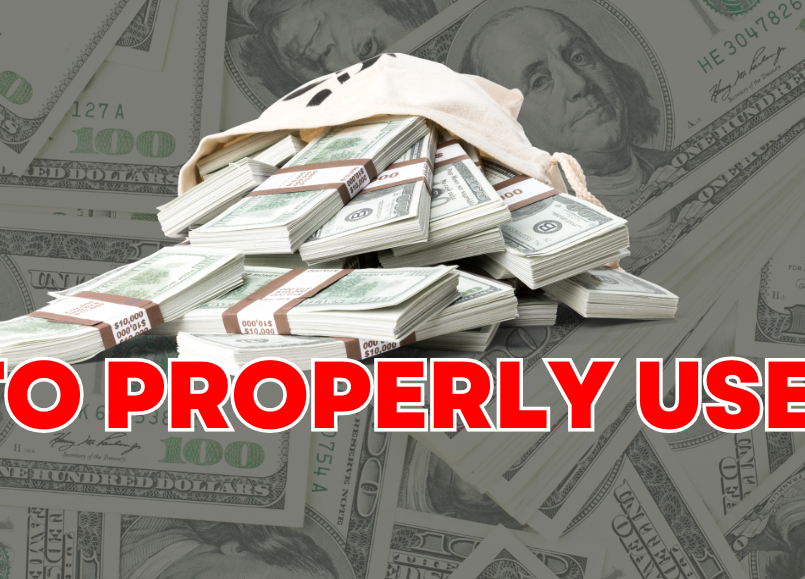Financial Freedom: 20 Habits to Destroy Debt and Build Wealth
Do you ever feel like you’re just scraping by?
You crave financial freedom but instead:
Paying for essentials feels like fighting an uphill battle.
Life is measured from paycheck to paycheck.
You pinch every penny just to survive.
You’re stressed. Tired. Frustrated. But know this: you’re not alone.
The Current Financial Landscape
Financial strain is now a growing anxiety trigger, especially among college students.
According to Forbes, a New America Foundation study found that:
The median debt for graduate students is $57,600.
One in four borrowers owes $100,000 or more.
And if it’s not student loans, it’s crushing credit card debt.
Sky-high interest rates are eating people alive.
But there’s an alternative:
Financial freedom.
How Much Money Do You Need for Financial Freedom?
It depends on what “freedom” means to you.
For some, it’s:
Pursuing a passion career (even with lower pay)
Retiring early
Taking multiple vacations each year
Buying what you love without financial strain
Working less but earning more
“Freedom has nothing to do with the actual dollar amount. Freedom is you get to do what you love.”
20 Habits to Destroy Debt and Build Wealth
Habit #1: Set Outcome Goals
Start with 90-day financial goals like:
Save an extra $1,500
Pay down $3,000 in student loans
Invest $2,000 into stocks
Big dreams start with bite-sized victories.
Habit #2: Set Process Goals
Process goals define how you’ll achieve outcome goals.
Example:
“Over the next two weeks, I will save $200 from my paycheck.”
Habit #3: Stop Making Excuses
Don’t fall into “everyone’s drowning in debt” thinking. Surround yourself with financially savvy people who elevate you.
Habit #4: Reject the Scarcity Mindset
Shift from “I can’t afford it” to “How can I afford it?” Desire financial freedom with unwavering intensity.
Habit #5: Commit to a Monthly Budget
Without a budget, you’re flying blind. Know your income, expenses, and financial gaps every month.
Habit #6: Be More Frugal
Simple ways to save:
Cut cable and use streaming
Cook meals at home
Sleep on big purchases before deciding
Buy groceries in bulk
Habit #7: Pay Yourself FIRST
George Clason’s timeless advice:
“Start thy purse to fattening.”
Save at least 10% of your income right away.
Habit #8: Say NO to Late Fees
Late fees are wealth killers. Set up autopay and reminders to stay ahead.
Habit #9: Seek Extra Income
Speed up your journey:
Part-time jobs
Freelancing
Side hustles
Selling skills or services
Habit #10: Buy Assets, Not Liabilities
Assets put money into your pocket (stocks, real estate). Liabilities drain your cash flow (credit card debt, car loans).
Habit #11: Attack Your Debt Strategically
Use methods like:
Debt Avalanche (highest interest first)
Debt Snowball (smallest balance first)
Habit #12: Regularly Review Your Expenses
Track every dollar.
Adjust spending habits monthly to stay on course.
Habit #13: Consult a Financial Advisor
When you’re ready, hire experts to create long-term strategies.
Habit #14: Invest in Yourself
Best investments:
Financial education books
Career skill upgrades
Monetizing your passions
Habit #15: Prioritize Health
Good health saves you:
On medical bills
On food costs
By improving career performance
Habit #16: Invest Early and Consistently
Compound interest is your best friend. Even $100/month invested early grows massively over time.
Habit #17: Teach Your Children About Money
Pass down smart money habits to future generations.
Habit #18: Prepare for Retirement
Open a 401k or IRA now:
Automate contributions
Get employer match if possible
Benefit from decades of compound growth
Habit #19: Be Accountable
Hold yourself responsible for progress—even when no one else is watching.
Habit #20: Solve Problems, Start a Business
Innovation = wealth.
People like Kevin Liang (Aquaponics) and Brooke Castillo (Life Coach School) found freedom by solving real-world problems.
Financial Freedom: Ultimately, It’s Up to You
Managing money can be exhausting. You’ll stumble. You’ll face challenges.
But as Robert Kiyosaki said:
“You’re only poor if you give up. The most important thing is that you did something.”
Every step you take moves you closer to financial freedom. Take action today—and refuse to settle for less.





